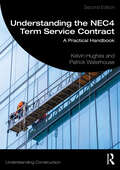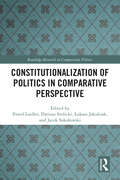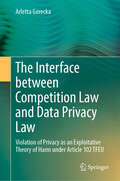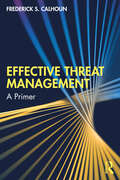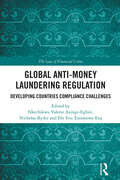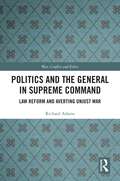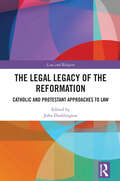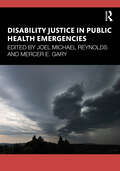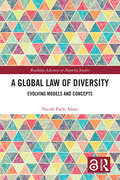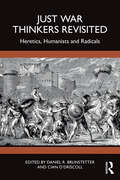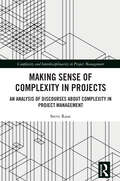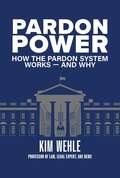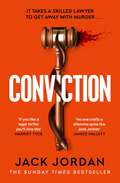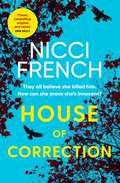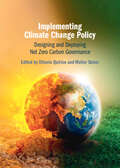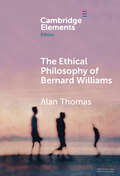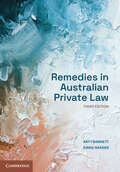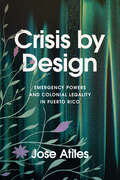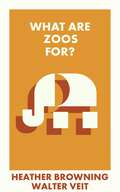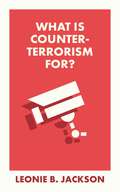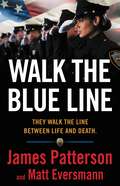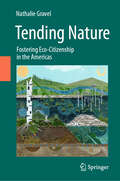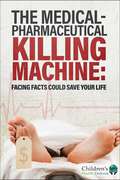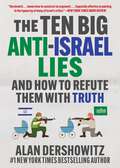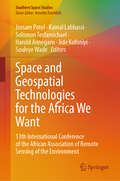- Table View
- List View
Understanding the NEC4 Term Service Contract: A Practical Handbook (Understanding Construction)
by Kelvin Hughes Patrick WaterhouseUse of the NEC4 suite of contracts continues to grow and the new edition of Understanding the NEC4 Term Service Contract includes significant additional materials and changes since its original publication immediately after the initial release of the NEC4 contracts. Experienced authors and construction contracts specialists Kelvin Hughes and Patrick Waterhouse have added numerous practical experiences, case studies, lessons learned and guidance notes which were not available at the time of writing the original book.Covering all the recent updates to the contract and written in plain English, Understanding the NEC4 Term Service Contract offers a practical guide to the use and management of the NEC4 Term Service Contract (TSC). The authors describe the full life of a contract, from the initial selection of options and contract formation through to the operations period and ultimately termination and dispute resolution. Although born of the same stable as the NEC4 construction contracts, the TSC is aimed at maintaining infrastructure and differs significantly from its siblings.This is essential reading for anyone working with the contracts and takes the reader through the important provisions including communications, planning, early warnings, compensation events and payments. It is ideal for clients, contractors and their advisors describing how to deploy the contract successfully.
Constitutionalization of Politics in Comparative Perspective (Routledge Research in Comparative Politics)
by Paweł Laidler Dariusz Stolicki Łukasz Jakubiak Jacek SokołowskiScholars from political science and law examine the latest research on the constitutionalization of politics in comparative perspective.The scope includes both inter- country and intra- country perspectives, institutional and systemic analyses, common and civil law systems, focusing on historical and contemporary case studies. There are chapters limited to a concrete legal and political system, analyzing the tools and processes guarding constitutionalization of politics in such countries as the United States, Germany, France, Italy, Poland, Finland, and Bulgaria, as well as studies offering comparative analysis of various institutions representing different countries and different legal and political systems. Taken together, this book uncovers a wide variety of legal and political cultures, systems of governments, and forms of territorial organization. Once uncovered, this approach makes it easier to determine repetitive patterns which may be observed in constitutional review and constitutional interpretation, or significant differences occurring in the models of constitutionalization of politics around the world.Constitutionalization of Politics in Comparative Perspective tackles important debates among academics interested in the theoretical and practical aspects of constitutions and constitutionalism and will appeal to social scientists, including sociologists, philosophers, security studies and international relations experts but also cultural studies scholars.
The Interface between Competition Law and Data Privacy Law: Violation of Privacy as an Exploitative Theory of Harm under Article 102 TFEU
by Arletta GoreckaThis book assesses the extent to which the current EU competition law framework can incorporate privacy-related theories of harm. Specifically, it evaluates the importance of protecting individual privacy in establishing exploitative abuse of dominance under Article 102 TFEU. The book explores scenarios where Big Tech firms exploit their dominant positions through excessive data collection or limiting consumer choice, thereby harming competition and directly affecting user well-being. It posits that zero-priced business models of online platforms and the ubiquity of data generation create strong incentives to acquire and process consumer data, which can harm digital consumers' privacy. The book assesses how the existing EU competition law framework can address and regulate exploitative abuses, particularly concerning the protection of individuals' privacy. Importantly, this book argues that competition law might recognize privacy-related harms as forming exploitative theories of harm under Article 102 TFEU. Article 102 TFEU offers flexibility and can be applied to a broader range of unfair practices. Article 102 TFEU emphasizes enhanced transparency and predictability, aiming to prevent abuses of dominant positions that could undermine healthy competition, to the detriment of consumers and other market participants. This book provides a comprehensive analysis of how the existing EU competition law framework can address the evolving challenges at the intersection of competition and privacy, ultimately seeking to protect consumer welfare and ensure fair competition in the digital economy.
Effective Threat Management: A Primer
by Frederick S. CalhounEffective Threat Management: A Primer presents the ABCs for identifying, assessing, and managing potentially violent individuals. By offering practical advice and tactics for dealing with problem individuals, the Primer serves as an ideal reference source for threat management professionals and as a practical introduction to threat management best practices for those new to the field. The question-and-answer format makes finding information easy. The book offers tips and cautions on practical ways to implement an effective threat management program in various situations, such as interpersonal relationships, schools, workplaces, public gathering places, or religious establishments. The Primer emphasizes practical, field-tested approaches to the challenges of identifying, assessing, and managing problem individuals.In the Primer, author Frederick S. Calhoun, a respected expert in threat assessment and management, shows how to set up a threat management process free of elaborate procedures or significant commitments of resources. The Primer offers a practical, step-by-step process for identifying, assessing, and managing problem individuals. Each section answers specific questions. A quick reference guide allows users to quickly locate specific issues or topics. Text boxes throughout the Primer offer practical support, helpful cautions, and real case-study illustrations.This user-friendly book will help threat management professionals in law enforcement and security positions as well as other professionals potentially facing threats, such as mental health practitioners, teachers, HR professionals, small business owners, and anyone else confronted with the need for threat management.
Global Anti-Money Laundering Regulation: Developing Countries Compliance Challenges (The Law of Financial Crime)
by Nicholas Ryder Nkechikwu Valerie Azinge-Egbiri Ehi Eric Esoimeme EsqThis book explores the politics of money laundering and terrorist financing (ML/TF) regulation in several countries across Africa and the Small Island States. Developed countries created the Financial Action Task Force (FATF) to combat ML/TF globally. Expectedly, the FATF’s standards mirror existing banking regulations within the G7 countries. Yet, the standards apply to all countries irrespective of the limited ML/TF risks they pose to the global economy, their weak pre-conditions for effective regulation and their non-involvement in the FATF’s framing. Still, such countries, mainly within the Global South, have worked hard to amplify their compliance with the regime due to fears of the repercussions of their non-compliance. This collection demonstrates how the global ML/TF regulation is treated as an implicitly superior legal regime where the Global South must comply irrespective of their perception of the FATF’s legitimacy challenges. It shows that beyond exogenous factors such as neo-colonialism, endogenous factors such as weak institutions and corruption undermine the compliance trajectory of the Global South. Furthermore, it analyses the unintended consequences of transplanting FATF standards into diverse legal and cultural contexts. The volume contributes to our understanding of the challenges of transplantation from the Global North and how the Global South is steering within the constraints created by the FATF. It advocates for a comprehensive understanding of the nuanced compliance challenges of developing countries. It further proposes practical solutions to address them, emphasizing the importance of risk-based understanding, accountability, capacity-building and coordination in achieving effective anti-money laundering and counter-terrorist financing measures. The collection will be essential reading for researchers, academics and policy-makers working in financial crime regulation and international economic law.
Politics and the General in Supreme Command: Law Reform and Averting Unjust War (War, Conflict and Ethics)
by Richard AdamsThis book argues for reform of the convention that, when politicians decide on a course of action, the general in supreme command obeys without question.The entire spread‑out chain of command is unified in the general, who offers the only connection between the military and politics. Offering the sole connection between the military and politics, only the general can turn political directions into military command and capacitate war. Thus, the general has unique opportunity to resist unconscionable direction to launch an unjust war or to conduct or expand war unjustly. This book argues for reform, so the general has the right in law to refuse direction which is lawful, but awful. The legal capacity to refuse would mean the general would be expected to act responsibly, not merely as the unresisting pawn of politics. Such reform, creating legal opportunity for the supreme command to refuse lawful but unconscionable directives, might avert unjust war.This book will be of much interest to students of the ethics of war, civil‑military relations, and international relations.
The Legal Legacy of the Reformation: Catholic and Protestant Approaches to Law (Law and Religion)
by John DuddingtonThe growing interest in the relationship between religion and law is, in the case of Christianity, often viewed in monolithic terms. Moreover, the debate is often seen in terms of the relationship of Christianity to the state along with discussions about, for example, religious freedom. Christianity is often seen as responding to claims made on it by the state and by the growth of secularism.This book takes a different approach. First, it makes the claim that Christianity has something of value to say about various pressing issues which are of direct relevance to contemporary society. Amongst these are the place of human rights and that of individual claims of conscience. Second, it does not regard Christianity as a monolithic whole but takes as its starting point the sundering of Christendom at the Reformation, which, it claims, led in many cases to divergent patterns of thought between Catholics and Protestants about law and its place in society. However, as this book shows, in many cases, Catholic and Protestant thinking on areas such as natural law is not as divergent as it is often thought.Five hundred years after the Reformation, the work presents a reflection on the roots of Catholic and Protestant thinking on law and its place in society. It will be of interest to canon lawyers as well as academics and students of law and religion.
Disability Justice in Public Health Emergencies
by Joel Michael Reynolds Mercer E. GaryDisability Justice in Public Health Emergencies is the first book to highlight contributions from critical disability scholarship to the fields of public health ethics and disaster ethics. It takes up such contributions with the aim of charting a path forward for clinicians, bioethicists, public health experts, and anyone involved in emergency planning to better care for disabled people—and thereby for all people—in the future. Across 11 chapters, the contributors detail how existing public health emergency responses have failed and still fail to address the multi-faceted needs of disabled people. They analyze complications in the context of epidemic and pandemic disease and emphasize that vulnerabilities imposed upon disabled people track and foster patterns of racial and class domination.The central claim of the volume is that the ethical and political insights of disability theory and activism provide key resources for equitable disaster planning for all. The volume builds upon the existing efforts of disability communities to articulate emergency planning priorities and response measures that take into account the large body of qualitative and quantitative research on disabled people’s health, needs, and experiences. It is only by listening to disabled people’s voices that we will all fare better in future public health emergencies.The book will be of interest to scholars and graduate students working in bioethics, disability studies, public health policy, medical sociology, and the medical humanities.
A Global Law of Diversity: Evolving Models and Concepts (Routledge Advances in Minority Studies)
by Nicolò Paolo AlessiThis book provides a global perspective on the accommodation of diversity within constitutional traditions, considering the most innovative approaches and legal instruments of the Global North and Global South. This field of study, traditionally dominated by a Global North approach based on majority-minority and rights-based discourse, is undergoing significant development. The work thus assesses the appropriateness of the existing mainstream theoretical tools and concepts – in particular minority and minority-related concepts as well as rights discourse – to grasp the ongoing evolution of this field of law. A reconsideration of the traditional conceptual categories and the introduction of the concept “Law of Diversity” is proposed as a theoretical framework to grasp the ongoing developments in this area. Among the models studied, those that are referred to as emergent models for the accommodation of diversity in the Global North appear to be particularly in need of theoretical recognition. To this end, the theory of federalism is used to serve a rather unexplored theoretical function. Federal theory is put forward as a theoretical instrument to frame and explain the emergent instruments for the accommodation of diversity, as well as provide practical solutions for their development. The book will be of interest to researchers, academics, and policy-makers working in the areas of comparative constitutional law, minority and indigenous rights law, and federal studies.The Open Access version of this book, available at http://www.taylorfrancis.com, has been made available under a Creative Commons Attribution-Non Commercial-No Derivatives (CC-BY-NC-ND) 4.0 license.
Just War Thinkers Revisited: Heretics, Humanists and Radicals (War, Conflict and Ethics)
by Daniel R. Brunstetter Cian O’DriscollThis book comprises essays that focus on a range of thinkers who challenge the boundaries of the just war tradition.The ethics of war scholarship has become a rigid and highly disciplined activity, closely associated with a very particular canon of thinkers. This volume moves beyond this by presenting thinkers not typically regarded as part of that canon but who have interesting and potentially important things to say about the ethics of war. The book presents 20 profile essays on an eclectic cast of heretics, humanists, and radicals, from ancient Greece to the twenty-first century, who lived through and theorized about violence. The book asks how ethics of war scholars might benefit from engaging with them. Some of these thinkers engage directly with—to augment or criticize—the just war tradition, while others contribute to military thinking across the ages, pushing the boundaries of what was acceptable in war. Many proffer alternative moral frameworks regarding the legitimacy of political violence. The present volume thus invites scholars to reconsider the ethics of war in a way that challenges the standard delineation between just war theory, realism, and pacifism and to reflect on how those positions might inform our own approach to these matters.This book will be of much interest to students of just war theory, ethics of war, war studies, and International Relations.
Making Sense of Complexity in Projects: An Analysis of Discourses about Complexity in Project Management (Complexity and Interdisciplinarity in Project Management)
by Steve RaueThis book explores ‘project management’ (PM) from a new perspective. Project management is facing a paradigmatic stalemate. Its major challenge is complexity. Its current paradigmatic foundation in first-order cybernetics has reached its limits. More tools are created and project management is applied to any potential context, expecting better results while doing more of the same. Beyond conventional project management, agile and other project management approaches have emerged as new options to answer the complexity challenge. Yet, the question remains whether new options and more tools in light of the current shortcomings can create enough momentum for project management as a whole to overcome its paradigmatic stalemate and evolve toward new paradigms based on second-order cybernetics. This book will embark on a journey to explore current paradigms in project management and argue why an analysis of discourse practices in project management may be critical to generating new paradigmatic perspectives.The aim of this book is to provide an alternative perspective on projects as discourses and project management as a means to observe and conduct these discourses. Instead of defining what projects and project management are, the approach is to look at what people talk about when doing projects and apply project management. It will arrive at a picture of how discourses about project management are shaped and institutionalised through the sensemaking of individuals and selected communities in their specific project practice and how these discourses shape project management in turn. It is argued that this self-reinforcing circle leads to a certain solidification of project management paradigms which prove insufficient in dealing with project complexity. However, it will also be argued that project practitioners can utilise their self-reflection and self-description of these discourse conventions to obtain more meaningful project conversations and arrive at a unified and systemically integrated understanding of project management.This book will be of particular relevance to those interested in current issues underlying project management. More generally, it will be a valuable resource for researchers of project management, organisational studies and governance.
Pardon Power: How the pardon system works—and why
by Kim WehleThe president's power to pardon federal crimes is immense, with roots in ancient notions of mercy and amnesty. However, this power, seemingly boundless under the Constitution, lacks clear constraints. Recent events have raised alarms about potential for presidential abuse of pardons, highlighting the need for accountability within the pardon system to uphold the foundational premise that no one is above the law. In Pardon Power: How the Pardon System Works--And Why, KIM WEHLE EXPLORES THE HISTORICAL CONTEXT AND CONTEMPORARY CHALLENGES SURROUNDING THE PRESIDENTIAL PARDON. Wehle debunks the widespread myth that the president's pardon power is absolute and unfettered, and concludes that a self-pardon for crimes in the Oval Office would be unconstitutional. Urgent recognition of the necessity for guardrails around the pardon power is essential to safeguard American democracy. Kim Wehle is a law professor and legal contributor for ABC News. She writes about civics and the rule of law. Her books include How to Read the Constitution--and Why, What You Need to Know About Voting--and Why, and How to Think Like a Lawyer--and Why.
Conviction: The new pulse-racing thriller from the author of DO NO HARM
by Jack Jordan'If you like a legal thriller you'll love this!' HARRIET TYCE TO STEAL A MAN'S FREEDOM ALL IT TAKES IS . . . CONVICTION Wade Darling stands accused of killing his wife and teenage children as they slept before burning the family home to the ground. When the case lands on barrister Neve Harper&’s desk, she knows it could be the career making case she&’s been waiting for. But only if she can prove Wade&’s innocence. A matter of days before the case, as Neve is travelling home for the night, she is approached by a man. He tells her she must lose this case or the secret about her own husband&’s disappearance will be revealed. Failing that, he will kill everyone she cares about until she follows orders. Neve must make a choice – betray every principle she has ever had by putting a potentially innocent man in prison, or risk putting those she loves in mortal danger.For fans of Steve Cavanagh, Linwood Barclay and Gillian McAllister, introducing the latest novel from the master of the moral dilemma, Jack Jordan.PRAISE FOR JACK JORDAN: 'When you pick up a book to read the first page and then can&’t put it down . . . ' SARAH PEARSE 'Thriller fans will be in heaven' LOUISE CANDLISH 'What a terrifying ride!' GILLY MACMILLAN
House of Correction: A twisty and shocking thriller from the master of psychological suspense
by Nicci French**HIGHLY COMMENDED FOR THE 2021 CWA GOLD DAGGER AWARD** She&’s a murderer. Everyone knows she killed Stuart Rees – why else would his dead body be found in her shed? So now Tabitha is in prison, awaiting trial. Coming back to the remote coastal village where she grew up was a mistake. She didn&’t fit in then, and she doesn&’t fit in now. That day is such a blur, she can&’t remember clearly what happened. There is something she is missing, something important… She only knows one thing. She is not capable of murder. And the only one she can trust to help her out of this situation is herself. So she must fight. Against the odds. For her life. Beautifully written about prejudice, loneliness and fighting spirit, this new book by Nicci French is shocking, twisty and utterly compelling. Praise for House of Correction: &‘A novel that blissfully plays with two genres: on the one hand an against-the-odds legal thriller à la John Grisham… and on the other a Miss Marple whodunnit set in a Devon village&’ Sunday Times &‘Nicci French husband-and-wife writing team responsible for some of the UK&’s best psychological thrillers have created a gem of a protagonist in Tabitha… House of Correction allows the readers to puzzle out what happened alongside Tabitha, while cheering her effort&’ Observer &‘First-class&’ Independent &‘Gripping&’ Literary Review &‘Gritty and moving – the husband-and-wife team have scored another hit&’ Best &‘A twisty and shocking read&’ Bella &‘Engrossing&’ Good Housekeeping &‘I wanted everything to stop so I could read this book… Definitely a favourite read of mine for 2020&’ Woman&’s Way (Ireland)&‘Describing it as a suspenseful prison thriller, or riveting courtroom drama doesn&’t do this meticulously written detective novel justice… As well as its finely drawn characters and clever storyline, this is a novel that provokes you into pondering the workings of the wider justice system, police methods and prison life&’ Bookanista &‘Great writing, razor-sharp plotting, and powerful characterisation. I was 100 pages in before I even drew breath, and I defy anyone to see the ending coming&’ Cara Hunter &‘Part ingenious locked-room mystery. Part you&’ve-got-thewrong-person nightmare drama. Part intricate memory game. Yet all seamlessly woven together. French&’s best book yet&’ A J Finn &‘Clever, compelling, original and twisty. This unputdownable David-and-Goliath story has the flawed, funny, totally unforgettable Tabitha at its heart and I read until the early hours, desperate to know her fate&’ Erin Kelly
Implementing Climate Change Policy: Designing and Deploying Net Zero Carbon Governance
by Ottavio Quirico Walter BaberThe chapters in this volume provide an interdisciplinary and comparative analysis of the implementation of climate change policies worldwide to assess whether they are meeting the aims set out in the 'Paris Agreement'. The first part compares climate policies employed by the EU, the US, Latin America, Russia, China, the Middle East, and Africa. The second explores ways of improving key regulatory mechanisms to increase the effectiveness of greenhouse gas mitigation and adaptation measures. This book argues that the international community should improve the effectiveness of enforcement mechanisms from the standpoint of secondary norms through an integrated approach. It is an indispensable resource for undergraduate and graduate students of environmental policy and governance, public policy, law and political science, as well as policy makers. This title is part of the Flip it Open Programme and may also be available as Open Access. Check our website - Cambridge Core - for details. (150, 992)
The Ethical Philosophy of Bernard Williams (Elements in Ethics)
by Alan ThomasThis Element surveys the main claims of Bernard Williams's ethical philosophy. Topics include ethical scepticism, virtue, reasons for action, the critique of the Morality System, moral realism and the nature of theorising in ethics.
Remedies in Australian Private Law
by Katy Barnett Sirko HarderRemedies in Australian Private Law presents a detailed and scholarly map of remedies under Australian private law. Clearly structured and accessibly written, the text takes a black-letter law approach to remedies in common law, equity and statute, and develops a framework for understanding the principles of private law remedies and their practical application. The third edition has been updated to include recent cases in remedial law, offering students clear links between principles and practice, and provides more in-depth coverage of compensation under the Australian Consumer Law. Reasonable fee awards and disgorgement and accounts of profit are now addressed in separate chapters to reflect recent changes in international case law. Written by an expert author team, Remedies in Australian Private Law enables students and practitioners to develop a coherent understanding of remedial law and to analyse legal problems and identify appropriate remedial solutions.
Crisis by Design: Emergency Powers and Colonial Legality in Puerto Rico
by Jose AtilesDevastating hurricanes, deteriorating infrastructure, massive public debt, and a global pandemic make up the continuous crises that plague Puerto Rico. In the last several years, this disastrous escalation has placed the archipelago more centrally on the radar of residents and politicians in the United States, as the US Congress established an oversight board with emergency powers to ensure Puerto Rico's economic survival—and its ability to repay its debt. These events should not be understood as a random string of compounding misfortune. Rather, as demonstrated by Jose Atiles in Crisis by Design, they result from the social, legal, and political structure of colonialism. Moreover, Atiles shows how administrations, through emergency powers and laws paired with the dynamics of wealth extraction, have served to sustain and exacerbate crises. He explores the role of the local government, corporations, and grassroots mobilizations. More broadly, the Puerto Rican case provides insight into the role of law and emergency powers in other global south, Caribbean, and racialized and colonized countries. In these settings, Atiles contends, colonialism is the ongoing catastrophe.
What Are Zoos For? (What Is It For?)
by Walter Veit Heather BrowningAre zoos an anachronism in the 21st century when we can watch animals in their natural habitat, close-up from our couches without worrying about cruelty? Should they go the way of other bygone era ‘spectacles’ and ‘attractions’ that we now regard as barbaric? There are vocal campaigners and activists who believe so. Heather Browning and Walter Veit disagree, but they acknowledge there is a case to be answered. In What are Zoos for? they test the common justifications for zoos (entertainment, education, research, conservation) against the evidence and suggest what the best zoos of the future should look like to ensure that they are primarily for animals and not just for people.
What Is Counterterrorism For? (What Is It For?)
by Leonie JacksonTerrorism will always be frontpage news – counterterrorism is often discussed as an afterthought, yet it is vitally important to understand what is done in the name of our safety. Since 9/11, there has been a huge ramping up of the state’s special powers in the name of security, such as indefinite detention, the assassination of suspected terrorists, the use of extraordinary rendition, torture, and changes to due process. However, these powers are often shadowy, they are rarely rolled back, and they can be counterproductive. This book focuses on understanding the costs of counterterrorism and asking how they can be reduced; global in scope, it looks not just at Western liberal democracies, but at numerous examples from across the world.
Walk the Blue Line: No right, no left—just cops telling their true stories to James Patterson. (Heroes Among Us #3)
by James Patterson Matt EversmannFrom the #1 New York Times bestselling authors of Walk in My Combat Boots: true-life stories from the men and women who protect and serve our homes, families and communities.Protect These men and women are our eyes. Our ears. Our protectors. Those who wear a badge, doing their best to help people. Serve These cops serve their communities. They serve their country. They&’re in the business of saving lives—even at the risk of their own. Defend These patrol officers and K9 handlers, sheriffs and detectives, reveal what it&’s really like to wear the uniform, to carry the weight of the responsibility they&’ve been given. This is a calling. This is the job.&“Walk the Blue Line is the book that the law-enforcement community has been waiting for. These stories showcase the courage, the hurt, the anger and the joy that can be found in every officer&’s DNA—and above all, their commitment to making difficult situations a little bit better." —Jim Pasco, Executive Director, National Fraternal Order of Police
Tending Nature: Fostering Eco-Citizenship in the Americas
by Nathalie GravelThis book aims to enhance understanding of the foundational principles and ethical considerations of citizen engagement in environmental conservation through an examination of successful cases of shared environmental governance in the Americas. It seeks to inform policymaking on strategies for fostering behavioral change and advancing towards co-management of national public resources and the commons. These cases are analyzed through a geographical lens to provide a framework for reimagining eco-citizenship grounded in bioregionalism. This perspective diverges from the notion of eco-citizenship as a universal culture, advocating instead for its integration within the collective habitats of citizen groups. Readers will gain insights into fostering reconciliation between nature and humanity by empowering diverse stakeholders to lead Blue/Green/Bee conservation initiatives. Emphasizing community learning, environmental awareness, and citizen participation, the book enriches decision-making processes and promotes environmental justice for all living organisms. The selected case studies from Brazil, Canada, Costa Rica, Mexico, and the United States highlight pioneering innovations in Blue/Green/Bee policy planning across urban, periurban, and rural settings. These initiatives propose empathetic and respectful approaches to nurturing our natural surroundings, including methods for co-management, networked urban gardening, wild native bee conservation, water source protection, community-based water management, river revitalization, and metropolitan green space stewardship. This book will be invaluable to students, urban and rural planners, researchers, academics, networking professionals, policymakers, international development practitioners, environmental organization personnel, and enthusiasts of the natural world alike.
The Medical-Pharmaceutical Killing Machine: Facing Facts Could Save Your Life
by Children's Health DefenseMedical and pharmaceutical history is replete with examples of dangerous interventions that have poisoned, injured, or killed. However, events since 2020 have attracted attention as never before to medicine&’s potential to be both lethal and malevolent. In The Medical-Pharmaceutical Killing Machine, Children&’s Health Defense situates current perils in their broader context with the aim of helping readers understand how to protect themselves and their loved ones. In the Greek Trojan War saga, the god Apollo ensured that Cassandra&’s prophecies would never be believed, with disastrous consequences. As recounted in the book, modern medicine, too, has produced its fair share of &“medical Cassandras&”—doctors and writers who have tried to warn the public about medicine&’s life-threatening underbelly, generally to little avail. A chapter dedicated to nine of these medical skeptics, beginning with Ivan Illich and his coining of the term &“iatrogenesis&” to describe adverse outcomes caused by doctors, weaves a powerful portrait of harms regularly denied and ignored, with those making the claims typically marginalized and &“canceled.&” The book shows that there is no shortage of tools in the killing machine arsenal. One chapter highlights the mRNA vaccine technology inaugurated with COVID, illustrating how this new mechanism for iatrogenesis is inflicting novel forms of toxicity, not all of which are yet understood. Another chapter about assisted suicide and euthanasia describes the chilling global proliferation of policies and propaganda promoting those practices for vulnerable populations that include babies, children, people diagnosed with autism, and the mentally ill. The book also describes factors that make it possible for the killing machine to continue operating with impunity, including the ascendance of an &“evidence-based medicine&” juggernaut, medical gaslighting, and a ballooning global enforcement infrastructure. Nor does it shy away from confronting what some now characterize as &“iatrogenocide&”; a chapter asking &“Why Do They Do It?&” considers money, prestige, and control as three possible answers. Ultimately, it is only by acknowledging the long-standing reality of an all-too-effective medical-pharmaceutical killing machine that people can learn to dodge the threats and work toward building a different model that prioritizes life and genuine health.
The Ten Big Anti-Israel Lies: And How to Refute Them with Truth
by Alan DershowitzThe goal of The Ten Big Anti-Israel Lies: And How to Refute Them with Truth is to contribute to the marketplace if ideas by offering truthful and well-documented facts that disprove the defamatory fictions—the big lies—that are pervasive in the current protests against Israel. The book&’s intended audiences are open-minded students and others who seek to hear fact-based information on all sides of the relevant issues. It is also designed to provide intellectual ammunition to pro-Israel students who seek to engage in exchanges with their anti-Israel interlocutors. It is hoped that this book, will help promote fact-based debate and dialogue about Israel and its enemies. As a lifelong Zionist and supporter—though often a critical supporter—of Israel, I am convinced that the unvarnished truth about all sides of the conflict will, if fairly assessed, refute the blood libels currently directed at the nation-state of the Jewish people. This book will demonstrate that the vast majority of accusations leveled by the anti-Israel protestors and professors are false. I will describe their ten central accusations about the past, the present, and the future, and then refute them with indisputable documentary, historical, and empirical evidence.
Space and Geospatial Technologies for the Africa We Want: 13th International Conference of the African Association of Remote Sensing of the Environment (Southern Space Studies)
by Souleye Wade Jossam Potel Kamal Labbassi Solomon Tesfamichael Harold Annegarn Jide KufoniyiThis book comprises the contributions of the African Association of Remote Sensing of the Environment (AARSE) international conference which is conducted biennially across Africa, alternately with the AfricaGIS conference. It is the premier forum in Africa for research on remote sensing technologies and geospatial information science, gathering leading scholars from the remote sensing and related communities. The 13th AARSE International Conference was held on October 24-28, 2022 in Kigali, Rwanda, to focus on Earth observations and geospatial science to achieve the Sustainable Development Goals. The five-day event themed “Space and Geospatial Technologies for the Africa We Want” was organized by the African Association of Remote Sensing of the Environment (AARSE) and the Institut d’Enseignement Supérieur de Ruhengeri (Ines-Ruhengeri) in partnership with Rwanda Space Agency and Space in Africa. Furthermore, the conference was sponsored by GMES and Africa, the Regional Centre For Mapping Of Resources For Development (RCMRD), Airbus, European Space Agency (ESA), Digital Earth Africa, and INES-Ruhengeri and Rwanda Space Agency. The 13th Conference continues a long series of successful AARSE conferences which started in 1996, in Harare (Zimbabwe), and has been held in Abidjan (Cote D'Ivoire) in 1998, Cape Town (South Africa) in 2000, Abuja (Nigeria) in 2002, Nairobi (Kenya) in 2004, Cairo (Egypt) in 2006, Accra (Ghana) in 2008, Addis Abeba (Ethiopia) in 2010, El Jadida (Morocco) in 2012, Johannesburg (South Africa) in 2014, Kampala (Ouganda) in 2016, and in Alexandria (Egypt) in 2018. The book is mainly addressed to practitioners and experts from academia, politics, and industry.
